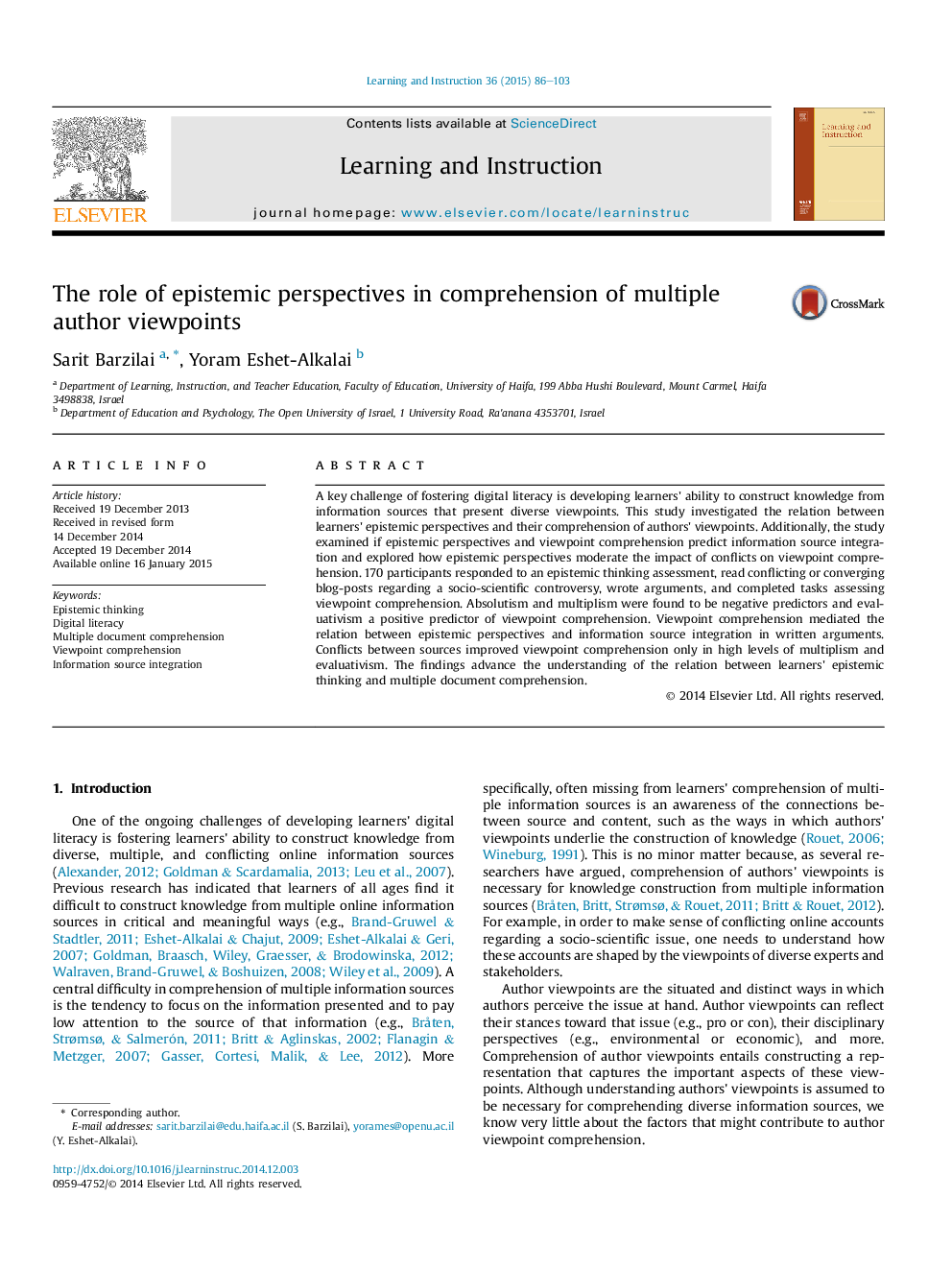| Article ID | Journal | Published Year | Pages | File Type |
|---|---|---|---|---|
| 365549 | Learning and Instruction | 2015 | 18 Pages |
•The role of epistemic perspectives in author viewpoint comprehension was examined.•Absolutism and multiplism were negative predictors of viewpoint comprehension.•Evaluativism was a positive predictor of viewpoint comprehension.•Viewpoint comprehension positively predicted information source integration.•Epistemic perspectives moderated the impact of conflicts on viewpoint comprehension.
A key challenge of fostering digital literacy is developing learners' ability to construct knowledge from information sources that present diverse viewpoints. This study investigated the relation between learners' epistemic perspectives and their comprehension of authors' viewpoints. Additionally, the study examined if epistemic perspectives and viewpoint comprehension predict information source integration and explored how epistemic perspectives moderate the impact of conflicts on viewpoint comprehension. 170 participants responded to an epistemic thinking assessment, read conflicting or converging blog-posts regarding a socio-scientific controversy, wrote arguments, and completed tasks assessing viewpoint comprehension. Absolutism and multiplism were found to be negative predictors and evaluativism a positive predictor of viewpoint comprehension. Viewpoint comprehension mediated the relation between epistemic perspectives and information source integration in written arguments. Conflicts between sources improved viewpoint comprehension only in high levels of multiplism and evaluativism. The findings advance the understanding of the relation between learners' epistemic thinking and multiple document comprehension.
